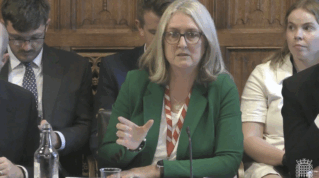The West Midlands has a young, diverse and vibrant population. It is a great region to live, to study and to work in, but the impact of Covid has been profound – particularly on the mental health of our young people.
Before the pandemic, we were already seeing an increase in mental health issues affecting students at all levels and of all ages, but primarily among those from disadvantaged areas and backgrounds. Lockdowns, Covid restrictions and lack of adequate access to education and training only served to exacerbate this further.
For many, this has had a serious impact on their studies.
The nature of vocational studies, coupled with the learning needs of students from many of our most disadvantaged wards, has meant that large numbers of young people have missed key elements of their education, including basic social and study skills.
For some, this has been compounded by a lack of access to technology and to family support. And it is now being exacerbated by anxiety about finances and the increased cost of living.
At South and City College in Birmingham, our key focus is to educate and train young people for their future employment. This primarily means providing teaching and learning in classrooms and workshops.
However, the increasing prevalence of mental health issues among our students – resulting in poor attendance or behaviour, physical difficulties, attention problems, and difficulties in completing work etc – is presenting serious challenges for how we can achieve this.
Over the past year, we have sought to address this through a pilot scheme that employs a small number of specialist staff who support students with serious mental health issues. While this has had made a massive impact on our students, the cost of this support is simply too high to expand it within current levels of funding – particularly for students aged 19-plus.
While the level of funding for 16-18 study programmes is becoming increasingly insufficient, it does enable us to provide a far greater level of support than is possible for equivalent learners aged 19-plus, where funding is only available for individual qualifications, rather than for wider wrap-around support and enrichment activities – a funding gap of around £1,200 per person.
This is not only unfair for learners and financially challenging for colleges, but also risks adding to our regional challenge around increasing youth unemployment and inactivity.
To help address this inequality, we made the case to the West Midlands Combined Authority (WMCA) as part of their recent level 3 consultation that they should implement a full study programme approach to funding level 2 and level 3 qualifications for young adults aged 19-23.
And we have been extremely pleased to see that this will be introduced from September 2023 – a clear demonstration of the benefits to learners and to colleges of skills devolution, through co-development of solutions that can make a difference to our learners and the local labour market.
We anticipate that this will help us to reach more young people and enable them to achieve level 2 and 3 qualifications. Longer term, this should also reduce demand on public services such as employment support and the NHS.
As a next step, we will continue to work with WMCA as they seek to implement the findings of the West Midlands Mental Health Commission by creating a new “Thrive at College” programme as part of our wider work and health offer for the region.

















Your thoughts